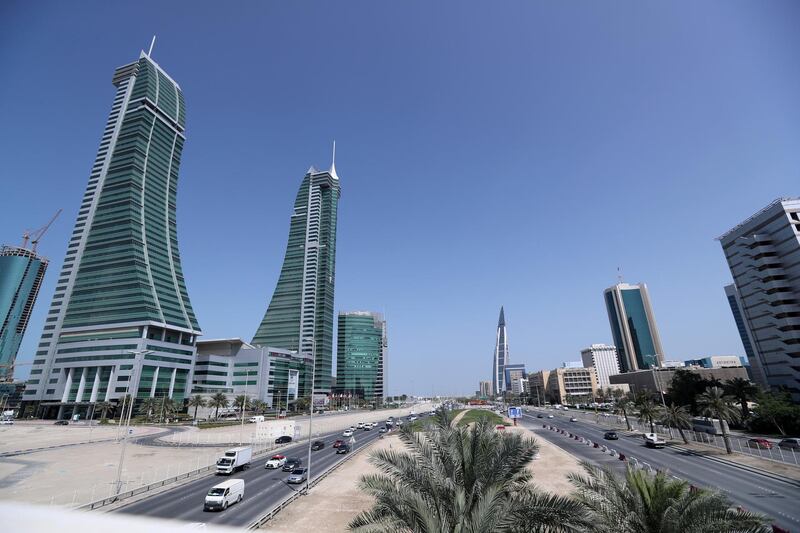Bahrain’s credit rating will depend on the size, timing and the form of the financial support pledged by its Arabian Gulf allies last week to ensure fiscal stability of the kingdom's financial institutions.
The Gulf’s smallest economy will need around $2.3 billion to $2.8bn in the second half of 2018 and more than $4bn next year to finance its budget deficit and service its debts, according to a Moody’s Investors Service report.
“Prompt and sizeable financial support would support Bahrain's credit profile,” Moody’s said. “Conversely, delays or lack of clarity on the form and modality of financial support by the GCC would put negative pressure on the sovereign's creditworthiness.”
Last week, Bahrain pledged to implement measures to repair its strained finances as it awaits help from its neighbours Saudi Arabia, the UAE and Kuwait. The trio announced financial help to support Bahrain’s “economic reforms and fiscal stability” without providing details on the amount or the timeline of funds. Bahrain’s finances have been hit hard by a three-year slump in oil prices, leaving it grappling with ballooning public debt to plug its budget deficit.
Moody’s, which rates Bahrain B1-, said its assessment of Bahrain’s credit rating is based on the condition that the government continues to have access to funding either through financial markets or financial help from its GCC allies.
“Additional new financial commitment from the GCC would provide effective support to the sovereign's credit profile if it is large .... [if] it includes clear conditions and modality of provision, and if it is flexible to ensure that the funds can be tapped in the case of prolonged impaired market access,” Moody’s explained.
__________________
Read more:
[ Bahrain to receive second economic package from the GCC ]
[ Bahrain launches $1bn fund to invest in new shale reserves ]
[ Bahrain says it has discovered 80 billion barrels of shale oil ]
[ High oil prices do not eliminate risks to GCC sovereign ratings ]
__________________
The financial support package by the Arabian Gulf allies will not only help boost investor confidence, it will also limit pressure on Bahrain's foreign reserves and lower its borrowing costs, according to BMI Research, a part of the Fitch group.
The country's public debt has jumped to 80.4 per cent of its gross domestic product in 2017 from 43.6 per cent in 2013, following the collapse in oil prices three years ago. The country’s foreign reserves, covering just one month of imports as of April, have raised concerns over the sustainability of Bahraini dinar's peg to the US dollar.
“The public commitment of support will bolster fading investor confidence, acting as a crucial backstop for Bahrain and helping to forestall rising pressure on external and fiscal accounts,” BMI said in a report.
Bahrain’s bond prices rebounded and the dinar recovered from a 17-year low last week after the GCC announcement of financial aid.
The three Gulf neighbours, BMI report said, will likely push the kingdom to implement more fiscal reforms including reining in government spending, specifically on subsidies, and raising revenue by speeding up the implementation of value-added tax, scheduled for the year-end or imposing new taxes on businesses.
Bahrain, which earns about 70 per cent of its revenues from oil, will see a drop in hydrocarbons income as oil production declines and prices stabilise, making it difficult to reduce debt without curbing spending.
BMI forecasts that Bahrain’s fiscal deficit will average 6.4 per cent of the GDP over the next five years, leading its debt-to-GDP ratio to hit 90 per cent by 2022.
The financial support package will "avert the risk of crisis in the short term" but Bahrain’s economy is expected to remain fragile in the long term, BMI said.







